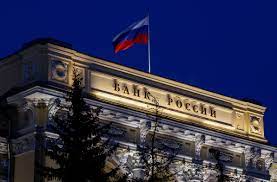According to a recent survey, the use of cryptocurrencies in Russia has witnessed a remarkable 4% increase in 2023, outpacing the growth rate in the United States by four-fold.
The survey reveals that Russia’s cryptocurrency adoption reached 14% in 2023, while the U.S. experienced only a 1% increase, bringing the U.S. user rate to 16%.
Factors Driving Crypto Adoption in Russia: Russia’s increased embrace of cryptocurrencies can be attributed to the economic sanctions imposed on the country, which have led to severe restrictions on the inflow of U.S. dollars and Euros.
To support the local currency, the Russian central bank, known as the Bank of Russia, has limited the withdrawal of U.S. currency.
Such restrictions on outflows of U.S. dollars are commonly employed by countries facing monetary crises to protect their local currencies.
Despite several attempts to ban cryptocurrencies in Russia, these efforts have been largely unsuccessful. In July of the previous year, the State Duma, the country’s lower house of parliament, enacted a law prohibiting the use of crypto for goods and services payments, while the Bank of Russia advocated for an outright ban.
However, the Russian government recently abandoned plans to create a national crypto exchange and is now focusing on issuing guidelines for the private sector.
Currently, Russia has multiple crypto exchanges operating within its borders, including Binance, Kraken, Bybit, Okcoin, and Bittrex.
The escalating cyber attacks on Russian banks and financial institutions from Ukraine’s IT Army have played a significant role in driving the adoption of cryptocurrencies in Russia. These attacks frequently disrupt banking services and established financial channels.
Notably, several Russian banks, insurance companies, the online tax system, and the country’s social fund have all fallen victim to successful cyber attacks from Ukraine.
Major telecom provider ER-Telekom was also hacked, causing bank outages for institutions such as Alfa-Bank and Sberbank.
These disruptive events have compelled Russian banks and businesses to explore crypto and blockchain solutions to mitigate future disruptions.
Given the growing threat of cyber attacks on Russia’s financial system, it is anticipated that the use of cryptocurrencies will continue to rise.
Some Russian institutions are already taking proactive steps to incorporate cryptocurrencies into their operations. Rosbank, for example, has announced plans to launch a cross-border payment system using crypto tokens.
Additionally, the Russian Institute of the Commissioner for the Protection of Rights of Entrepreneurs has recommended further opening up cryptocurrency for payments and international transactions.
As Ukraine’s hackers potentially intensify their operations alongside their armed forces, the adoption of crypto and blockchain technologies may serve as a means for Russian banks and businesses to ensure greater resilience and security.



